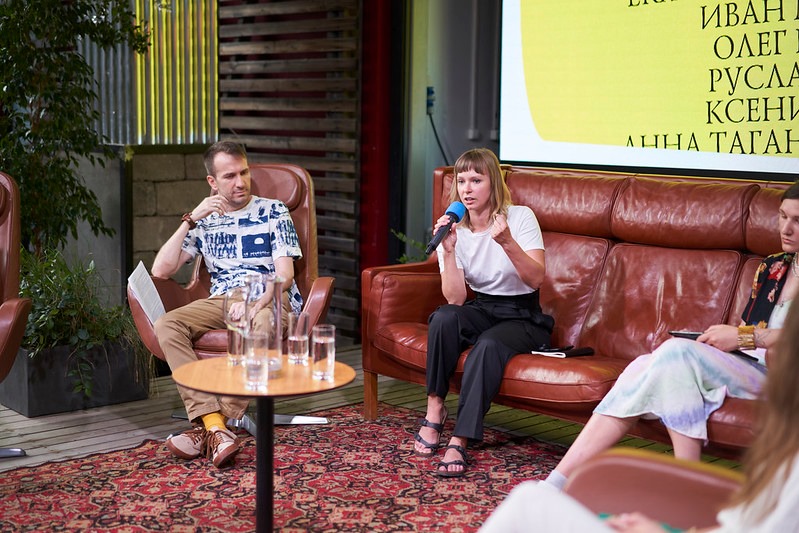Introducing Habidatum
Q: Can you introduce yourself and your startup?
A: My name is Katya Letunovsky, and I serve as the co-founder and vice president of Habidatum. My professional background is in geography and urban planning, areas in which Habidatum is making significant strides by introducing novel data types.
At Habidatum, we specialize in working with diverse data sources such as telecom, spending, and social network data. Our primary goal is to sift through this data, remove any irrelevant information, and process it to uncover valuable insights for urban planning, location analysis, and real estate portfolio management.
Q: How did the idea for your startup come about?
A: The idea for Habidatum emerged from a direct need we experienced, along with my co-founders, and market analysts. The market is overflowing with data, but when it comes to conducting comprehensive analyses for real estate corporations or cities, there seems to be a glaring gap. The data that’s readily available doesn’t meet the needs of those conducting the analyses. This mismatch between the provision and consumption of data is exactly what we aim to address at Habidatum, bridging the gap to facilitate more informed decision-making in our domains of expertise.
Why Startupbootcamp?
Q: What motivated you to join Startupbootcamp?
A: Our primary motivation for joining Startupbootcamp was to accelerate our growth and increase our market presence. We were keen on expanding our network and acquiring valuable insights into various aspects of our business. Specifically, we wanted to learn how to market our products more effectively, enhance our product packaging, and refine our overall marketing, sales, and product strategies. Startupbootcamp presents an ideal platform for achieving these goals by providing access to a wealth of knowledge and resources that are critical for a startup’s growth and development.
Startupbootcamp Application Process
Q: Can you describe the application process for Startupbootcamp?
A: The application process for Startupbootcamp involved several steps. Initially, we had to submit a written proposal detailing our startup and its potential. Following the proposal submission, we underwent a series of interviews that further assessed our team and our project’s viability.
Additionally, there was a teaching session designed to evaluate the startups. This session was crucial as it determined which startups would be selected for participation in the program. The entire process was rigorous but incredibly valuable, as it not only tested our readiness but also provided early insights into the areas we needed to focus on for growth.
Q: What set your company apart for acceptance into the program?
A: Several factors contributed to our acceptance into Startupbootcamp. Primarily, it was our relevance to the program’s focus, which had a strong emphasis on FinTech. We were transitioning towards providing services for citizen real estate to financial service providers, which aligned perfectly with the program’s interests.
Additionally, having a solid team played a crucial role. Both co-founders are fully committed to the project, and we’re backed by an exceptional technical team. Our achievements, the robust data platform we’ve developed, our data partnerships, and notable traction, including a long-term collaboration with Mastercard and engagement with top-tier companies, significantly bolstered our application. While traction was important, the selection process also considered the team’s strength, the product’s innovation, its market relevance, and its potential impact.
Inside Startupbootcamp Program
Q: What does the program entail after acceptance?
A: The Startupbootcamp program was structured to provide a blend of individual and group learning experiences. It featured numerous one-on-one meetings with mentors and advisors, as well as group sessions, such as ‘teach breakfasts’ and specific task-focused groups aimed at areas like business model development, mission and vision formulation, and messaging strategies. This combination of formats made the program quite intense, which is precisely what we were looking for.
Beyond lectures and educational content available on the SBC platform, including videos and articles, the program emphasized a personal touch. It focused on practical application, involving discussions about our specific business case, exercises, feedback exchange with other program participants, and interactions with potential customers. This targeted approach was instrumental in refining our business model and strategies.
Q: Does Startupbootcamp provide specific funding terms upon acceptance, or is it a negotiation process?
A: The funding arrangement with Startupbootcamp followed a standard set of terms. However, for the most accurate and updated information regarding the specific terms of funding, I recommend checking the program’s official website. The details might be published there, but generally, the terms are quite standardized across participants.
Achieving Milestones and Overcoming Challenges
Q: Can you share a significant milestone achieved during the Startupbootcamp program?
A: A major milestone for us was the enhancement of our pitching skills. We dedicated a lot of effort to refining our pitch, and the progress we made throughout the program was truly remarkable. The pitch we developed is still available online, and I often refer to it when introducing our company. It stands out as one of the best presentations we’ve made, largely thanks to the training and feedback received during the program.
Besides improving our pitch, we also made significant strides in market development by securing several valuable leads that we continue to engage with. These achievements highlight the tangible benefits we derived from participating in Startupbootcamp.
Q: Did you face any challenges during the program, or were there unexpected insights?
A: Interestingly, we didn’t encounter challenges in the conventional sense. However, the diversity of the participant group, especially in terms of their backgrounds in financial services and FinTech, provided a unique challenge. We approached financial services and FinTech from multiple angles, including professional services and individual financial behavior. This diversity meant that during group exercises, we examined topics from a wide array of perspectives. Although navigating these differing viewpoints was challenging, it was a positive and enriching experience that broadened our understanding and approach to financial services and FinTech.
Current Status and Future Goals of Habidatum
Q: What is the current status of Habidatum and what are your future goals?
A: Currently, Habidatum continues to focus on the real estate sector and targeting companies within the financial services industry. Our products are evolving, yet the core essence remains unchanged. The data platform and key products developed during the Startupbootcamp program continue to exist and expand. Our primary goal is to increase our marketing footprint and extend the reach of our product. This effort involves the collective work of both our product and technical teams to make our offerings more streamlined for consumer use. Additionally, our marketing and business development teams are intensively working on enhancing our advertising strategies, messaging, and content creation to better promote our services.
Advice for Founders Considering Startupbootcamp
Q: Do you have any advice for founders thinking of applying to Startupbootcamp?
A: I would strongly recommend applying to Startupbootcamp, regardless of your company’s stage. The program offers a wealth of diverse information that can be beneficial at various points of a company’s journey. The experience is tailored to be very individualized, making it exceptionally valuable. For those looking to achieve tangible results from the program, it’s crucial to have clear objectives and key results (OKRs) defined. This approach helped us ensure that each goal was measurable and straightforward, maximizing the value we derived from our participation. Without specific objectives, the program can be incredibly enlightening and exciting, yet it might not deliver the precise outcomes you’re seeking. Setting clear OKRs is something I strongly recommend to all prospective participants.


